Ethics in AI Colloquium | Why New Realities Demand New Rights
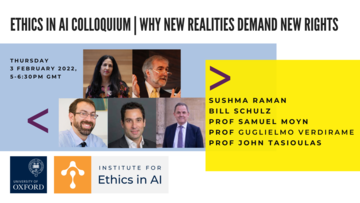
Ethics in AI Colloquium - presented by the Institute for Ethics in AI
Online Event: Thursday 3 February 2022, 5 - 6:30pm
https://www.youtube.com/embed/FpGMGEal6kA
The Institute for Ethics in AI will bring together world-leading philosophers and other experts in the humanities with the technical developers and users of AI in academia, business and government. The ethics and governance of AI is an exceptionally vibrant area of research at Oxford and the Institute is an opportunity to take a bold leap forward from this platform.
Every day brings more examples of the ethical challenges posed by AI; from face recognition to voter profiling, brain machine interfaces to weaponised drones, and the ongoing discourse about how AI will impact employment on a global scale. This is urgent and important work that we intend to promote internationally as well as embedding in our own research and teaching here at Oxford.
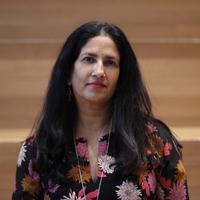
Sushma Raman is the Executive Director of the Carr Center for Human Rights Policy. She brings over two decades of global experience launching, scaling, and leading social justice and philanthropic programs and collaboratives, building capabilities of grassroots human rights organizations and their leaders, and teaching graduate courses in the public policy schools at UCLA, USC, Tufts Fletcher School, and Harvard Kennedy School.
Sushma is the co-author, along with Bill Schulz (former executive director of Amnesty International USA and Carr Center Senior Fellow), of the book The Coming Good Society: Why New Realities Demand New Rights, released by Harvard University Press in June 2020. This forward-looking book examines the coming changes to the human rights landscape and argues that rights must adapt to new technological and scientific realities or risk being consigned to irrelevance.
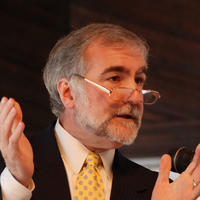
Bill Schulz is a Unitarian Universalist minister by training and former President of that denomination, Bill Schulz served as Executive Director of Amnesty International USA, the U.S. division of Amnesty International, from 1994-2006; Senior Fellow for Human Rights at the Center for American Progress from 2010-16 and President and CEO of the Unitarian Universalist Service Committee from 2010-16. He taught human rights for eight years at NYU’s Wagner School of Public Policy; was appointed Pozen Visiting Professor of Human Rights at the University of Chicago in 2013; and is currently an affiliate Professor at Meadville Lombard Theological School in Chicago. Schulz was the recipient of the 2000 Humanist of the Year award from the American Humanist Association.
Commentators:
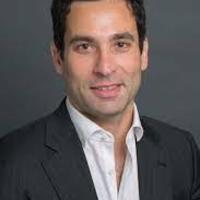
Guglielmo Verdirame, Professor of International Law at the Department of War Studies and The Dickson Poon School of Law has been appointed to Queen’s Counsel.
The QC appointments have been made by Her Majesty The Queen on the advice of the Lord Chancellor, David Gauke MP, following consideration by the independent Queen’s Counsel Selection Panel.
Professor Verdirame is an expert in public international law and international arbitration and recognised as one of the leading practitioners in the field. Professor Verdirame has published extensively in the areas of public international law, international arbitration, and comparative public law.
He joined King’s in 2011 and was previously a Lecturer in the Faculty of Law at the University of Cambridge and a Fellow of the Lauterpacht Centre for International Law (2003-2011); a Junior Research Fellow at Merton College, Oxford (2000-2003); and a Research Officer at the Refugee Studies Centre at the University of Oxford (1997-98). He also held a visiting appointment at Harvard Law School (2007) and was Director of Studies for Public International Law at the Hague Academy of International Law (2006).
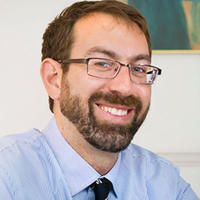
Samuel Moyn teaches law and history at Yale University, and is in Oxford for the term to deliver the Carlyle lectures in the history of political thought.
He has written several books in his fields of European intellectual history and human rights history, including The Last Utopia: Human Rights in History (2010), and edited or coedited a number of others. His most recent books are Christian Human Rights (2015, based on Mellon Distinguished Lectures at the University of Pennsylvania in fall 2014) and Not Enough: Human Rights in an Unequal World (2018). He is currently working on a new book on the origins and significance of humane war for Farrar, Straus, and Giroux. Over the years he has written in venues such as Boston Review, the Chronicle of HigherEducation, Dissent, The Nation, The New Republic, the New York Times, and the Wall Street Journal.
Chaired by
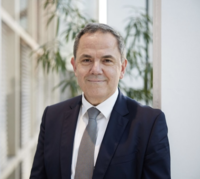
John Tasioulas, the inaugural Director for the Institute for Ethics and AI, and Professor of Ethics and Legal Philosophy, Faculty of Philosophy, University of Oxford. He was previously the inaugural Chair of Politics, Philosophy & Law and Director of the Yeoh Tiong Lay Centre for Politics, Philosophy & Law at The Dickson Poon School of Law, Kings College London. Professor Tasioulas has degrees in Law and Philosophy from the University of Melbourne, and a D.Phil in Philosophy from the University of Oxford, where he studied as a Rhodes Scholar. He was previously a Lecturer in Jurisprudence at the University of Glasgow, Reader in Moral and Legal Philosophy at the University of Oxford, where he taught from 1998-2010, and Quain Professor of Jurisprudence at University College London. He has also acted as a consultant on human rights for the World Bank and is a member of the International Advisory Board of the European Parliament's Panel for the Future of Science and Technology (STOA). He has published widely in moral, legal, and political philosophy.
Find out more about the full Institute for Ethics in AI programme here.


